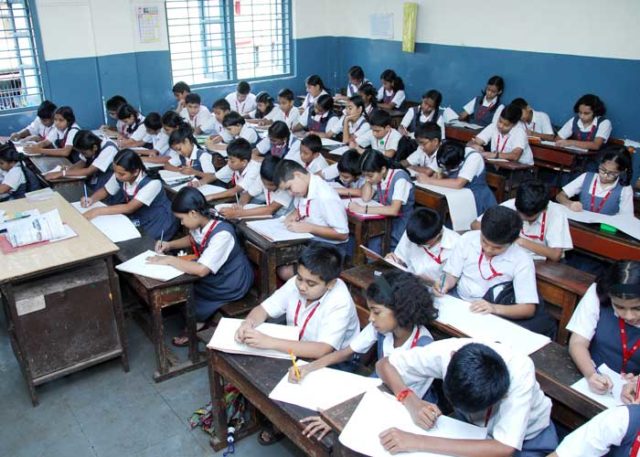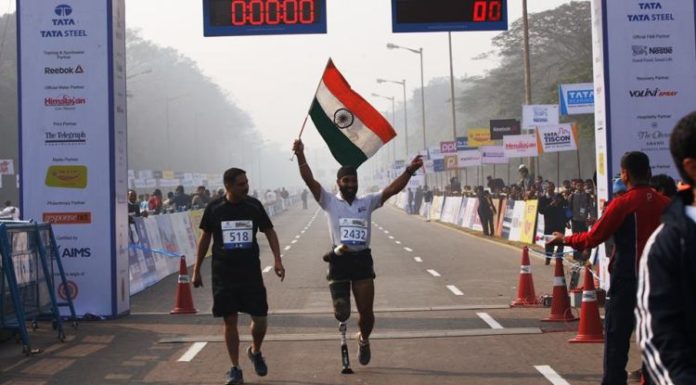Education is a basic necessity, it is a child’s right. It forms the foundation to any individual’s growth in life. Any nation’s future depends on its youth; to ensure the nation’s growth, the youth need to be not only educated, but well- educated. The Indian Government has put meticulous efforts in order to refine the education system at school level in India. However, there is still much scope.
We need to reform and revolutionise the Indian Education system in order to build a strong workforce for the nation. Only if you nurture a sapling with care does it grow into a sturdy tree. The school- going children of India also need nurturing and support.
Why we need educational reforms becomes clear when we analyse the present day situation of schools and education in the country. One also needs to keep in mind that India is still a developing country, and hence faces certain social issues which further add to the grave problem.

Some of the shortcomings in the contemporary system are as follows-
LACK OF ATTENTION TO PRIMARY SCHOOLS
Unfortunately, primary schooling in India is not given the due weightage it deserves. The first five years of a child’s life are fundamentally important. They are the foundation that shapes the child’s future health, happiness, growth, development and learning achievement at school, in the family and community, and in life in general. All children should have access to quality health care, good nutrition, education, and protection from harm, abuse and discrimination; only then will they grow up to achieve their full potential. Primary education should thus be given highest value. Primary teachers are paid the least in comparison to higher grade teachers. Parents do not worry as much about their child’s growth and learning during these years; they’d rather worry about percentages that the child will score during board exams. This mind-set needs to change in the system, as a rule.
INFRASTRUCTURAL HANDICAPS
Our country is still battling with poverty and lack of resources with respect to a very large population. Corrupt practices have also led to irregular distribution of the resources. The worst hit are the rural areas where basic necessities like clean water and sanitation facilities are lax. In such conditions, how can we be sure that each school going child is being provided with adequate infrastructure and supplies (books, pencils, notebooks) for a legitimate education? In so many villages of the country, children still study under the shade of trees, without even proper blackboards. The system needs more monitoring under the categories of teaching, evaluation, and regular reformation.
QUALITY OF TEACHING
Being a teacher in India is still considered to be a low level, easy job that does not require technical qualification. This is a sad state of affairs. Millions are still not aware how crucial a teacher’s role is in a child’s life. Most youngsters are running towards large companies or international schools that pay well, but the government schools are being given no second thought. We must realise that each child is capable and deserving of a good education, no matter which class of the society he/she belongs to, or how much money his/her parents can shell out. Certain organisations such as Teach For India are doing a good job in encouraging able and noble youngsters to take up teaching for the underprivileged students. Interviews and quality checks for teachers should have the strictest filters in order to ensure premium quality of teaching across the nation.
AGE OLD PATTERNS OF EDUCATION
As a system, we are yet to break the shackles of conventional patterns of education. Most of us are still stuck on putting certain subjects on a pedestal, and mocking artistic pursuits. The topics of Non- Medical and Arts streams are still debates in Indian households, for only a handful of parents understand that each child has a unique potential which is not necessarily compatible with Physics or Chemistry only. In the developed countries, teachers take painstaking efforts to ensure the child works according to his/ her talents and capabilities; they ensure counselling of the child in order to bring out the best in him/ her. A combination of subjects can be taken, according to the passions of the child, unlike the rigid 5 subject permutations that the Indian Education system allows. Even though we have introduced wonderful concepts like Multiple Intelligences and Educomp in our schools, we still have a long way to go. Sports and extracurricular activities need more encouragement and rewards, in addition to scholarships. The stereotypical patterns of imparting knowledge and evaluating the child’s growth need to change. Higher percentages do not always signify higher intelligence. Focus needs to be on learning, not cramming.
Racism, casteism, gender inequality, and biased forms of reservations in educational institutes- many such social issues plague our nation. They add to the poor state of education in Indian schools. We need to eradicate these prejudices and have a long- term vision. The Government or concerned authorities need to carve out practical goals and ensure their effective implementation on ground. Apart from implementation, we need to monitor the reforms constantly. In order to drive a child to his/ her full potential, motivation is the key.


























